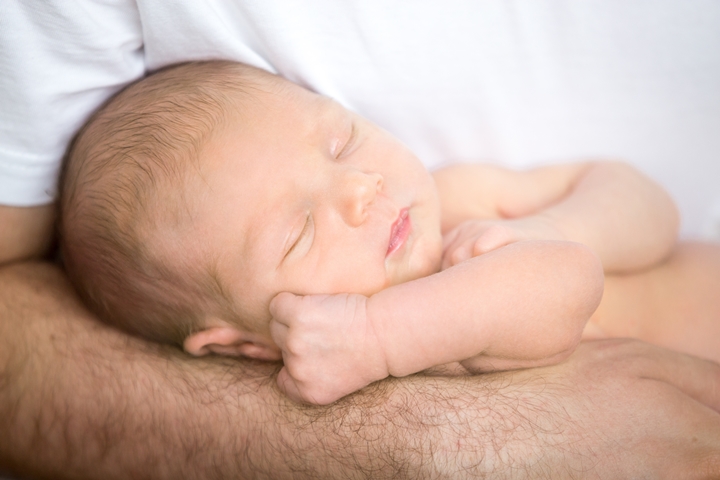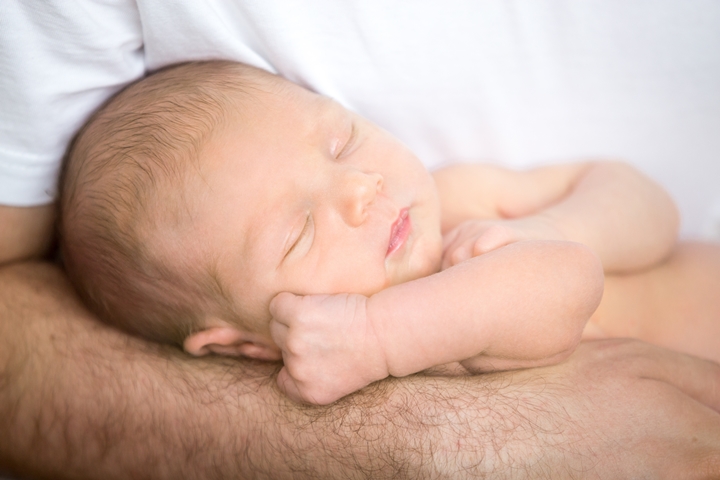
When parents bring a newborn baby home for the first time, they want to ensure that the baby is healthy, happy and everything is progressing well. One common concern for new parents is how long and how often their newborn should be sleeping.
Newborn sleeping patterns can be unusual to say the least! Here is a simple guide to newborn care that will specifically talks about how to help your newborn sleep well.
Newborns have varied sleeping patterns
Just like adult humans, newborn babies can have unique sleeping patterns. On average, you can expect a newborn baby to sleep around 16 hours per day during the first month. Some babies greatly vary from the average and may sleep as little as 12 hours a day or as much as 19 hours a day.
Newborns can sleep restlessly
It is common for babies to move around a lot while sleeping and to look like they are struggling to get their rest. This occurs because they have vastly different sleep patterns to adults. Babies can spend 50% of their time sleeping in REM (rapid eye movement) sleeping states. That is compared to adults who can spend as little as 20% in REM sleep.
So 50% of the time the baby is sleeping, they are having wonderful dreams and may be moving their arms and legs. During this period of their development, their brain is rapidly adapting to their new environment, trying to understand the world around them. Don’t take this constant movement to mean the baby isn’t getting a peaceful sleep.
Newborns are frequently hungry and will wake for food
Because newborn babies have such small stomachs; they can only intake a small amount of milk in one sitting. Their body will burn through those calories very quickly, and send signals to the baby’s brain to demand more food!
You can expect a newborn baby to demand food every 2-4 hours with a 5 hour stretch when they are having a deep sleep. To determine if your baby is waking up for a feed or waking up because he/she is rested, listen to the sounds they make. You will quickly learn what sounds indicate your baby is hungry by how keen they are for the bottle or breast.
_______________
Read More:
4 Effective Ways to Bond with Your Baby
First Month Survival Tips for New Dad
10 Basic Things to Buy for Your Newborn Baby
Guide to Handling Colicky Baby for New Moms
_______________
Newborns make lots of noise while sleeping
Many new parents become concerned about the sounds they hear while listening to their baby sleep. Newborn babies will snort, gasp, sigh, yawn and even snore! Breathing can also be erratic with pauses every now and then (which really stress out some parents).
It is completely normal for your baby to have varied breathing while sleeping and to make some strange noises.
Newborn babies often breathe at different rates, which can be deep and slow or shallow and fast. Newborn babies also experience a breathing variation called “periodic breathing”. Periodic breathing is when a baby stops breathing for up to 10 seconds, then has a number of fast and shallow breaths. Research has shown as many as 78% of infants undergo episodes of periodic breathing in the first two weeks of their life (Kelly et al., 1985)
There are some sounds and breathing issues which parents should be aware of. If your newborn has the following issues with their breathing, get them to the doctor:
- Rapid shallow breathing for prolonged periods
- Grunting sounds at the end of every breath (may indicate the newborn is struggling to open blocked airways)
- Flaring of the nostrils
- Dramatic pulling in of the chest and between the ribs with every breath
How should newborns be put to sleep?
For the first few weeks or months, most parents decide to keep the baby’s crib in the room with them. That way they can listen to the baby and feed them easily. It is important that you don’t share your bed with a newborn baby because it can increase the risk of accidental suffocation and SIDS (sudden infant death syndrome).
Here are general guidelines for how your baby should sleep:
- Place your baby on their back to sleep, not on their side or stomach. Research has demonstrated that babies sleeping on their backs have a lower risk of SIDS
- Don’t put anything else in the crib with them, including blankets, pillows and toys
- Make sure your crib meets the latest safety standards and that there are no nearby hazards.
Sources: Kelly DH, Stellwagen LM, Kaitz E, Shannon DC. Apnea and periodic breathing in normal full-term infants during the first twelve months. Pediatr Pulmonol. 1985 Jul-Aug;1(4):215-9.
{{cta(‘ceac604f-5007-4fb2-9b20-3629af4173e8’)}}


